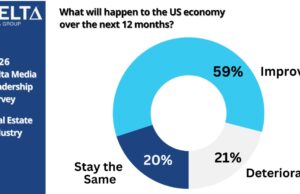Official Statement from the National Fair Housing Alliance Regarding HUD’s Recent AFFH Rule Changes
Washington, D.C. – (RealEstateRama) — HUD’s recently announced Advanced Notice of Proposed Rulemaking concerning the Affirmatively Furthering Fair Housing (AFFH) Rule ultimately does not affect our pending litigation, National Fair Housing Alliance, et al. v. Carson, et al. Our lawsuit deals specifically with the unlawful suspension of the Rule, which went through extensive piloting and public comment and is designed to produce real results for eliminating discrimination. Yet, HUD continue to unnecessarily delay meaningful implementation of the Rule instead of upholding its mandate under the law. While HUD continues to waste time and resources, millions of Americans are suffering from the devastating effects of housing discrimination and segregation.
The AFFH mandate has real implications for people’s lives. For example, African American and Latino neighborhoods in Houston, Texas, experience disproportionate flooding due to a separate and unequal water drainage system. Texas Low Income Housing Information Service conducted an analysis of the City of Houston’s data which revealed that 88% of open ditch drainage in the city is located in African American neighborhoods. These open ditches are inadequate protection against the storms that regularly hit Houston and are drastically different from the drainage system protecting non-Hispanic White communities. The AFFH Rule provides a framework designed to assist local jurisdictions in assessing how best to address these kinds of entrenched forms of housing discrimination and segregation.
The National Fair Housing Alliance (NFHA) stands ready to work with HUD and local communities to ensure that the rule and any future modifications are carried out in a manner that guarantees accountability and meaningful outcomes. However, any reconsideration of the rule must account for the fact that HUD has a track record of more than 40 years of failing to properly ensure compliance with its affirmatively furthering fair housing mandate. AFFH has always been part of the original mandate of the Fair Housing Act of 1968. Unfortunately, it continues to be one of the least enforced aspects of the law.
While the rulemaking process is underway, HUD should continue to vigorously enforce the current rule, which gives jurisdictions the tools and guidance they need, allows community voices to be heard, and is flexible enough to accommodate different local circumstances. Instead, HUD has reverted to a process that HUD itself concluded was highly flawed, and that the GAO found did not work. There is no legitimate reason to suspend the AFFH Rule if HUD truly seeks to do the job that Congress gave it in the Fair Housing Act.
###
Founded in 1988, NFHA is a consortium of more than 220 private, nonprofit fair housing organizations, state and local civil rights agencies, and individuals from throughout the United States. Headquartered in Washington, D.C., NFHA works to eliminate housing discrimination and ensure equal housing opportunity for all people through leadership, education, outreach, membership services, public policy initiatives, community development, advocacy, and enforcement.
Texas Low Income Housing Information Service, or Texas Housers, is a nonprofit 501(c)(3) corporation established in Austin in 1988 by a concerned group of community leaders, nonprofit, public and private housing providers and low income people.
Texas Appleseed is a public interest justice center that works to change unjust laws and policies that prevent Texans from realizing their full potential. Our nonprofit conducts data-driven research that uncovers inequity in laws and policies and identifies solutions for lasting, concrete change.
The plaintiffs are represented by the Lawyers’ Committee for Civil Rights Under Law, the law firm of Relman, Dane & Colfax PLLC, the American Civil Liberties Union (ACLU), the NAACP Legal Defense and Educational Fund, Inc. (LDF), the Poverty & Race Research Action Council (PRRAC), and Public Citizen Litigation Group.














